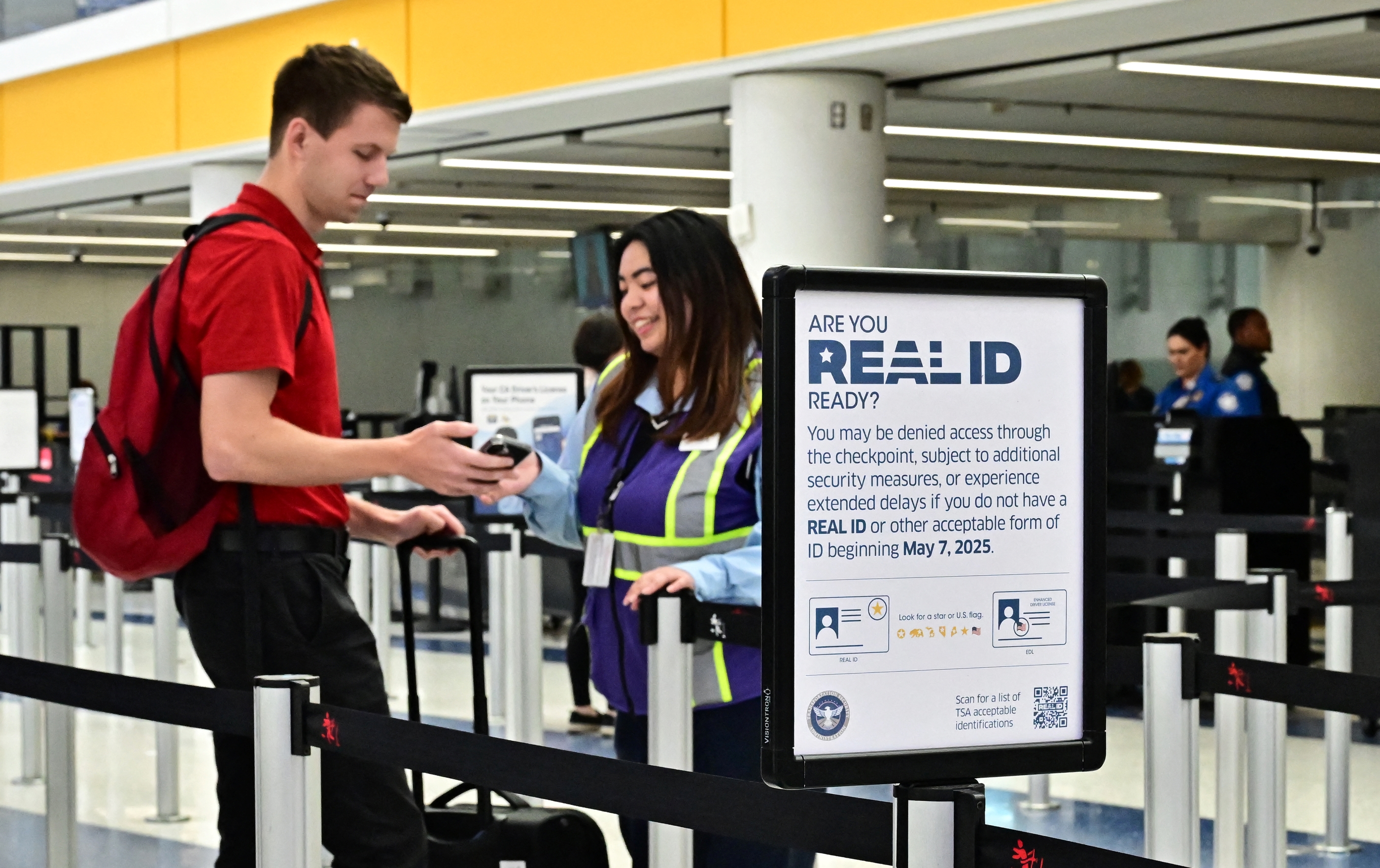Hurricane Season 2025: What Travelers Need to Know This Summer
A stormy season is brewing. NOAA is forecasting an active hurricane season. Here’s how to protect your trip and avoid costly disruptions.

Profit and prosper with the best of Kiplinger's advice on investing, taxes, retirement, personal finance and much more. Delivered daily. Enter your email in the box and click Sign Me Up.
You are now subscribed
Your newsletter sign-up was successful
Want to add more newsletters?

Delivered daily
Kiplinger Today
Profit and prosper with the best of Kiplinger's advice on investing, taxes, retirement, personal finance and much more delivered daily. Smart money moves start here.

Sent five days a week
Kiplinger A Step Ahead
Get practical help to make better financial decisions in your everyday life, from spending to savings on top deals.

Delivered daily
Kiplinger Closing Bell
Get today's biggest financial and investing headlines delivered to your inbox every day the U.S. stock market is open.

Sent twice a week
Kiplinger Adviser Intel
Financial pros across the country share best practices and fresh tactics to preserve and grow your wealth.

Delivered weekly
Kiplinger Tax Tips
Trim your federal and state tax bills with practical tax-planning and tax-cutting strategies.

Sent twice a week
Kiplinger Retirement Tips
Your twice-a-week guide to planning and enjoying a financially secure and richly rewarding retirement

Sent bimonthly.
Kiplinger Adviser Angle
Insights for advisers, wealth managers and other financial professionals.

Sent twice a week
Kiplinger Investing Weekly
Your twice-a-week roundup of promising stocks, funds, companies and industries you should consider, ones you should avoid, and why.

Sent weekly for six weeks
Kiplinger Invest for Retirement
Your step-by-step six-part series on how to invest for retirement, from devising a successful strategy to exactly which investments to choose.
Weather is always a concern when you’re planning summer travel; a single storm can ruin a beach day and disrupt your itinerary. But during the 2025 hurricane season, preparation is more important than ever.
We’ve already seen the first named storm, Hurricane Erin, and forecasters are tracking additional systems developing right behind it.
The National Oceanic and Atmospheric Administration (NOAA) is predicting an above-normal season, with more storms expected to form and intensify. That means flexibility, insurance and timing could make a big difference in how smoothly your trip goes.
From just $107.88 $24.99 for Kiplinger Personal Finance
Become a smarter, better informed investor. Subscribe from just $107.88 $24.99, plus get up to 4 Special Issues

Sign up for Kiplinger’s Free Newsletters
Profit and prosper with the best of expert advice on investing, taxes, retirement, personal finance and more - straight to your e-mail.
Profit and prosper with the best of expert advice - straight to your e-mail.
What NOAA’s 2025 hurricane forecast means

According to NOAA, the 2025 Atlantic hurricane season lasts from June 1 to November 30, and NOAA warns that conditions are ripe for an above-normal level of activity. In its latest forecast, the agency gives a 60% chance that this year’s season will exceed typical storm levels.
NOAA expects 13 to 19 named storms, of which six to 10 could become hurricanes. Among those, three to five are projected to be major hurricanes, with sustained winds of at least 111 miles per hour — powerful enough to cause significant damage and widespread disruption.
The outlook reflects unusually warm ocean temperatures and the influence of La Niña, both of which can fuel stronger and more frequent storms.
Earn rewards faster and enjoy exclusive perks, including complimentary airport lounge access when you add one of Kiplinger's top airline cards to your wallet, powered by Bankrate. Advertising disclosure.
Who’s most at risk this hurricane season?
While all travelers should stay aware of weather conditions, peak hurricane season falls from mid-August to mid-October, so extra caution is needed if you're traveling during that window.
Hurricanes frequently impact the Gulf Coast, Florida, the Southeastern United States and the Caribbean islands. If you're planning a cruise or booking a Caribbean resort, it's essential to monitor the hurricane forecast closely.
Although coastal areas face the highest risk, the damage isn’t limited to shorelines. For example, Hurricane Helene pushed inland as far as western North Carolina, devastating communities and halting tourism until repairs could be made. If a hurricane is forecast near your destination or travel route, be ready to adjust your plans accordingly.
Why travel insurance matters this season
Travel insurance can help you recoup most of your trip costs if you must cancel because of a hurricane. Standard travel insurance typically includes trip cancellation coverage, which reimburses you for prepaid, nonrefundable expenses if you cancel for a covered reason.
Common covered reasons include unforeseeable events such as hurricanes and extreme weather, a serious injury or illness that prevents you from traveling, the death of a family member, or terrorism.
For example, if a hurricane prevents you from taking your trip, trip cancellation insurance could reimburse you for nonrefundable expenses such as flight bookings, hotel stays and cruise excursions.
Cancel for any reason (CFAR) coverage works a bit differently. It allows you to cancel your trip for any reason, whether covered under the policy or not, but usually offers only partial reimbursement. Many CFAR policies reimburse 75% of nonrefundable expenses, which is less than what standard cancellation insurance might cover.
If you’re buying travel insurance for a trip during hurricane season, be sure to carefully review the policy. Look for coverage related to hurricane evacuation, travel delays and trip cancellations.
If you’re considering travel insurance, purchase your coverage early. For travel insurance to cover hurricane-related expenses, you need to buy the policy before a hurricane is named, for hurricane-related coverage to apply.
Smart booking strategies during hurricane season
As you plan your travel during the 2025 hurricane season, consider booking lodging with flexible cancellation or refund policies. This can help you recover some or all your money if severe weather forces you to change plans.
You should also choose travel providers with clear cancellation terms, and make sure you’re familiar with those policies as your departure date approaches.
Some airlines and hotels charge fees to change reservations, so look for providers that offer no-change-fee options for added flexibility..
Cruise destinations are especially vulnerable during hurricane season. If you’re planning a cruise, look for one with an itinerary that avoids storm-prone areas, or schedule your trip outside of peak hurricane season months.
How to track storms and stay prepared
Staying informed about the weather is key to being prepared when traveling during hurricane season. Fortunately, several reliable resources can help you track approaching hurricanes and other severe weather events:
- The NOAA National Hurricane Center issues hurricane and tropical storm watches, warnings, advisories and outlooks.
- The National Weather Service maintains a list of weather email and text alert services that provide news about severe weather.
- Many airlines share travel alerts and weather advisories that could impact your trip. Bookmark your airline’s alert page, and check it regularly if you're monitoring potential disruptions. For even faster updates, download your airline’s mobile app — most offer push notifications for flight changes, delays and weather-related alerts.
- The Red Cross Emergency App provides information before, during, and after weather emergencies. You can use the app to monitor five locations plus your current location to track conditions along your planned route.
- Some hotel apps also provide weather updates and emergency alerts. Be sure to download apps for any hotels you'll be staying at during your trip — they can offer timely notifications about local conditions, cancellations or safety procedures that could affect your stay.
Pay close attention to any developing storms about three to five days before you travel.
Monitoring the storms a few days before your trip will give you time to do your research, make a well-informed decision, and contact your airlines and hotels in advance if you feel you need to reschedule or cancel your trip.
Related Content
Profit and prosper with the best of Kiplinger's advice on investing, taxes, retirement, personal finance and much more. Delivered daily. Enter your email in the box and click Sign Me Up.

Paige Cerulli is a freelance journalist and content writer with more than 15 years of experience. She specializes in personal finance, health, and commerce content. Paige majored in English and music performance at Westfield State University and has received numerous awards for her creative nonfiction. Her work has appeared in The U.S. News & World Report, USA Today, GOBankingRates, Top Ten Reviews, TIME Stamped Shopping and more. In her spare time, Paige enjoys horseback riding, photography and playing the flute. Connect with her on LinkedIn.
-
 Dow Adds 1,206 Points to Top 50,000: Stock Market Today
Dow Adds 1,206 Points to Top 50,000: Stock Market TodayThe S&P 500 and Nasdaq also had strong finishes to a volatile week, with beaten-down tech stocks outperforming.
-
 Ask the Tax Editor: Federal Income Tax Deductions
Ask the Tax Editor: Federal Income Tax DeductionsAsk the Editor In this week's Ask the Editor Q&A, Joy Taylor answers questions on federal income tax deductions
-
 States With No-Fault Car Insurance Laws (and How No-Fault Car Insurance Works)
States With No-Fault Car Insurance Laws (and How No-Fault Car Insurance Works)A breakdown of the confusing rules around no-fault car insurance in every state where it exists.
-
 $100,000 Travel Emergencies You Don't See Coming and How to Prepare
$100,000 Travel Emergencies You Don't See Coming and How to PrepareTravel emergencies can get expensive fast. Here's how to protect your wallet from the worst-case scenario.
-
 Countries That Will Pay You to Move: Cash Grants, Incentives and What to Know
Countries That Will Pay You to Move: Cash Grants, Incentives and What to KnowExplore real relocation incentives — from cash grants and tax breaks to startup funding — that make moving abroad or to smaller towns more affordable and rewarding.
-
 How to Plan a Microvacation That Actually Feels Restful
How to Plan a Microvacation That Actually Feels RestfulHow a simple long weekend can boost your mood, reduce stress and make winter feel shorter.
-
 What Not to Do in an Airport Lounge
What Not to Do in an Airport LoungeBefore you settle into that cushy lounge chair, skip the rookie moves that annoy other travelers and can even get you kicked out.
-
 5 Unique Book-Inspired Trips Across America
5 Unique Book-Inspired Trips Across AmericaThere are five great trips to take across America that can immerse you in the culture of your favourite books.
-
 A New $45 TSA Fee Is Coming in February: What to Know
A New $45 TSA Fee Is Coming in February: What to KnowDon't have a REAL ID yet? You might get hit with a fee to go through security at the airport in February.
-
 The Best (and Worst) Airlines for Flight Delays and Cancellations
The Best (and Worst) Airlines for Flight Delays and CancellationsWhich airlines should you book and which should you avoid if you want to make it to your destination on time?
-
 How to Add Your Driver’s License or State ID to Google Wallet
How to Add Your Driver’s License or State ID to Google WalletStore and use your digital ID securely on your Android device for TSA, age verification and more.
